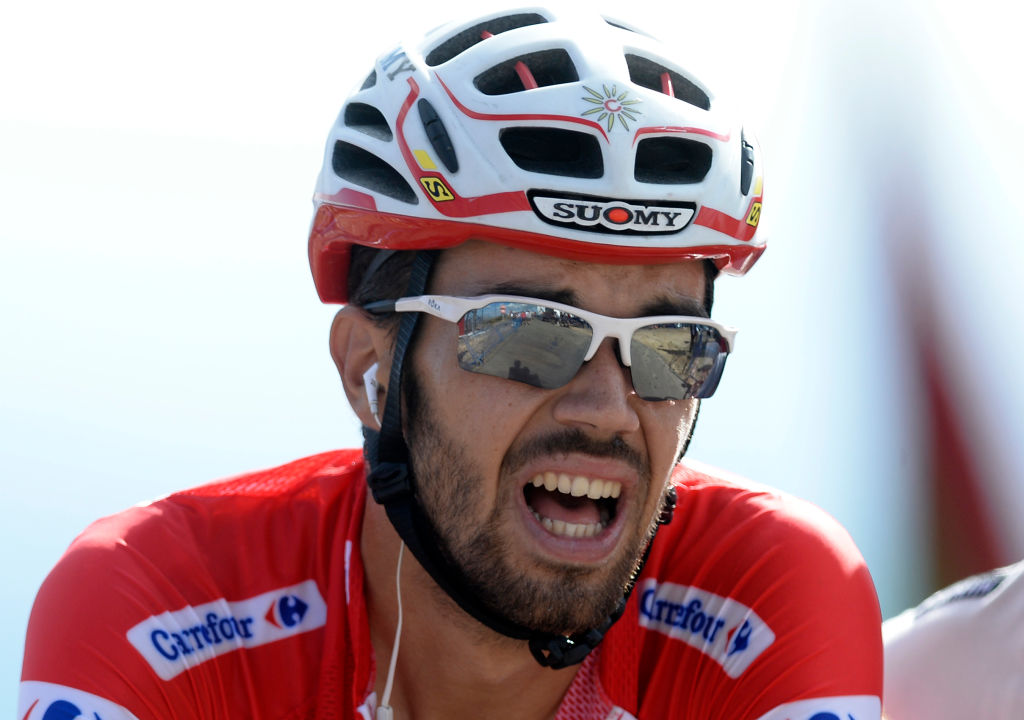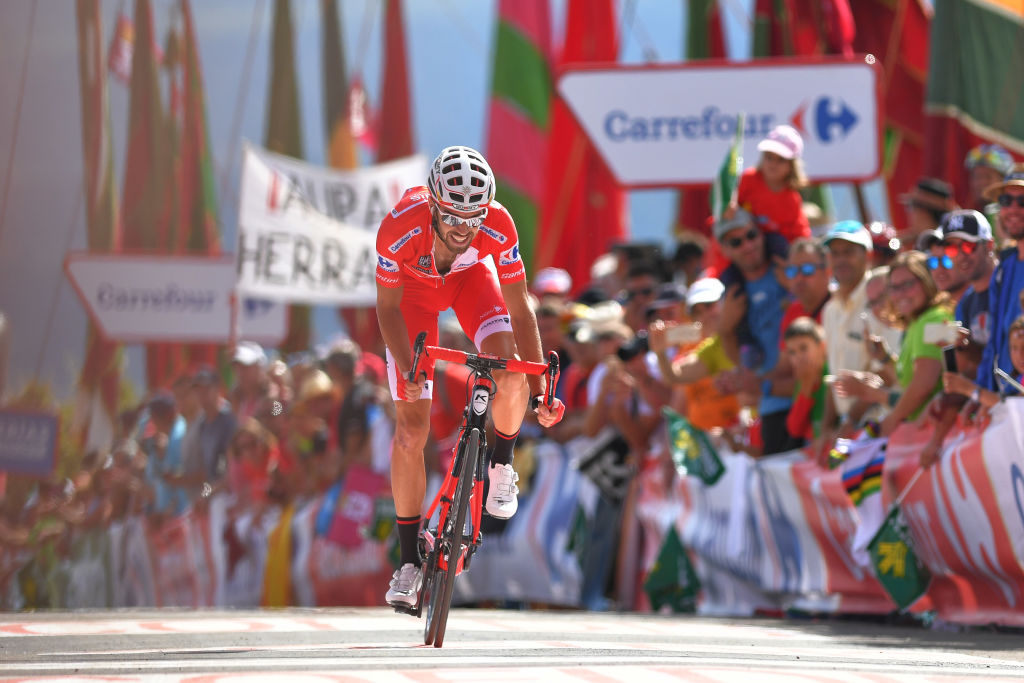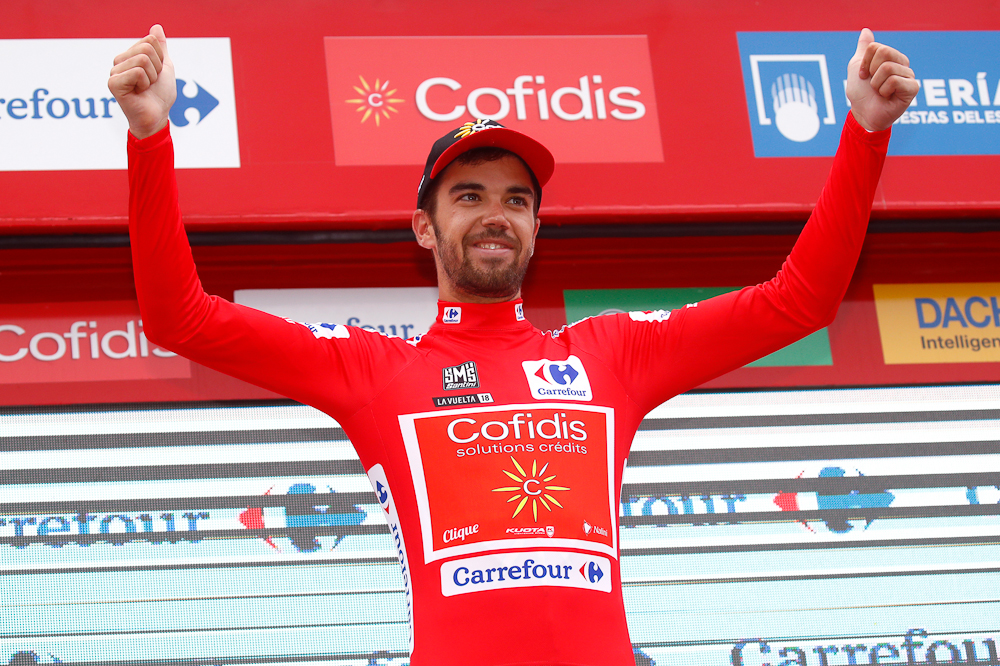Vuelta a Espana leader Jesus Herrada lives to fight another day on La Camperona
Cofidis pro loses two minutes on GC but hangs onto red jersey



Another day, another Vuelta a España leader's jersey: Jesus Herrada (Cofidis) suffered badly on the Camperona climb but the Spaniard remains on top of the overall classification for at least one more stage.
Herrada captured the read jersey on Friday after taking part in a long-distance breakaway, opening up an advantage of 3:22 on the previous Vuelta leader, Simon Yates (Mitchelton-Scott).
Dropped three kilometres from the summit of La Camperona, Herrada ceded almost exactly half of his advantage to the Briton on Saturday's stage.
But despite suffering from a cold, the Spaniard, 44th on the line, remains in the lead - and adamant he will go on fighting to stay there.
"I tried to get in the break again early on, but it wouldn't have worked out this time, they [the main GC teams] wouldn't have let it go" Herrada said afterwards.
"I knew I'd lose time, but I had no idea how much - 30 seconds, a minute, two…"
"It was a very hard stage, and for a rider who weighs 70 kilos, the only thing you know that will happen on a climb like La Camperona is that it's going to hurt."
The latest race content, interviews, features, reviews and expert buying guides, direct to your inbox!
With Movistar helping Cofidis, along with Astana, to keep the break under control, Herrada said that he had had a discussion with the Spanish team - for which he formerly rode - to try to form a working alliance.
"We couldn't keep the break pegged down by ourselves, we needed some more help," he insisted.
"Everybody in the team has got a bit of a cold and we're trying to think about Saturday's stage as well."
Roughly two minutes down at the finish line on most of the GC favourites, Herrada said he would repeat the strategy of defending the lead as best he could on Saturday's hilly stage, which features shorter, puncher ascents in the second half, but totalling nearly 3,000 metres of vertical climbing all the same.
"We will have exactly the same objective as today, and every stage that we managed to do it is a point in our favour," he argued. "We'll see how far we can go."
Alasdair Fotheringham has been reporting on cycling since 1991. He has covered every Tour de France since 1992 bar one, as well as numerous other bike races of all shapes and sizes, ranging from the Olympic Games in 2008 to the now sadly defunct Subida a Urkiola hill climb in Spain. As well as working for Cyclingnews, he has also written for The Independent, The Guardian, ProCycling, The Express and Reuters.
